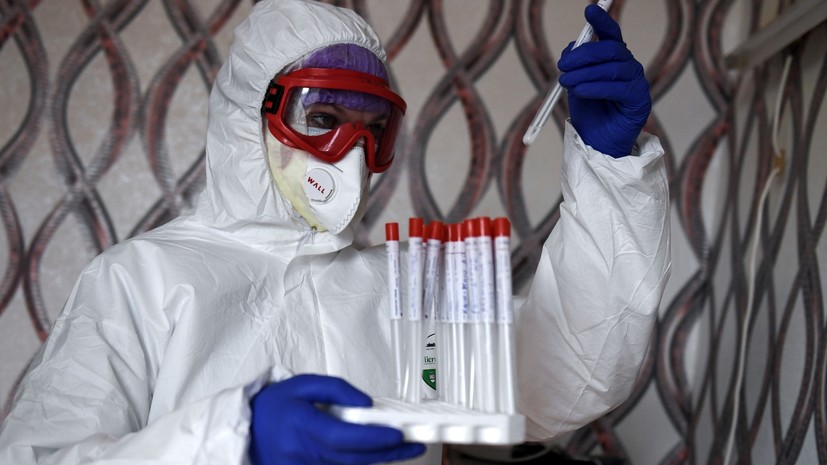Over the past day in Russia, the diagnosis of COVID-19 was confirmed in 14,861 people, according to the Operational Headquarters to combat the spread of coronavirus infection.
A day earlier, this figure was 15,089 cases.
Since the beginning of the pandemic, 4,057,698 cases of coronavirus have been identified in the country, 3,577,907 people have recovered, 79,696 have died from complications that developed against the background of COVID-19 and concomitant diseases.
In the last 24 hours, 18,765 patients have recovered.
At the same time, 502 deaths were recorded.
According to Rospotrebnadzor, more than 106.4 million tests for coronavirus have been carried out in the country all the time, including 393 thousand in the past day.
637,223 people remain under medical supervision.
Ancha Baranova, professor at the School of Systems Biology at George Mason University, believes that with the arrival of warm weather in Russia, a new round of coronavirus infection may begin.
Baranova drew attention to the fact that in Russia now the incidence of COVID-19 has begun to decline.
At the same time, she expressed fear that this was a temporary phenomenon.
“Now the weather is stably cold, and as soon as the temperature crosses zero, thaws will begin, the number of infections will increase,” RIA Novosti quoted her as saying.
However, the biologist believes that while people can "take a break from the virus."
Along with this, Baranova said that some people vaccinated against coronavirus infection may be asymptomatic spreading coronavirus.
“We must take into account that now there are fearless and maskless vaccinated and some of them will spread the virus asymptomatically,” she said.
The vaccine does not guarantee that the virus will be absent in the nasopharynx, Baranova emphasized.
According to her, vaccination "with only a high degree of probability provides a mild or asymptomatic course of the disease."
Baranova also believes that protective masks must be worn not only in the context of the coronavirus pandemic.
“In an ideal world of absolute security, mask mode is always necessary, even without coronavirus.
After all, there are also common infections, "RIA Novosti quotes Baranova.
She cited as an example the fact that influenza can also be fatal.
According to the biologist, for reasons of general safety, "it is always correct to wear masks."
Director of the Institute of Medical Parasitology, Tropical and Vector-borne Diseases.
EI Martsinovsky Sechenov University Alexander Lukashev, in turn, believes that the mask mode may be necessary until data on the frequency of re-infections with coronavirus and their consequences appear.
He noted that there are no guarantees that there will be no re-infection.
He added that there is little information on this score, since there is no complete picture of the primary cases.
“We know that re-infection is possible, but we do not know how often it is, because we even vaguely know about the primary cases, how many people we have at least once met with the virus.
Repeated cases are much more difficult to track, so we know that they happen, but we do not know how often, and until we get this information, we wear masks, ”TASS quoted him as saying.
In addition, Lukashev said that only about 10-20% of antibodies produced against any virus are effective against it.
The expert explained that the immune system produces a "pool" of antibodies, not knowing which ones will be more effective.
“However, most of them will not neutralize viruses.
In some cases, "extra" antibodies can even interfere - they can prevent the virus neutralizing antibodies to the virus, "he said.
According to him, antibodies are in the blood, and the coronavirus, at least in the first days after infection, multiplies on the mucous membranes.
Lukashev explained that in this regard, antibodies "do not particularly interfere with infection and primary reproduction of the virus."
At the same time, the presence of antibodies can help the body cope with the infection quickly and imperceptibly for a person, or at least reduce the likelihood of a severe course of the disease, the expert said.
Recall that earlier the World Health Organization announced cases of re-infection with new strains of coronavirus.
As the chief researcher of the organization Sumiya Swaminatan said, research is now being carried out on how much immunity from the virus is in people who have already been ill.
At the same time, she confirmed that the vaccinated persons carry the infection in a mild form.

